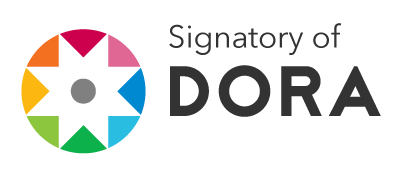Perceptions of principals, teachers, and parents regarding school dropout in the 7th to 9th grade of Basic Education in Choluteca
Keywords:
school dropout, migration, Honduras, economic situationAbstract
This article deals with the problem of school dropout in the 7th to 9th grade of Basic Education in the municipality of Choluteca, Honduras. The aim of the study is to analyze the factors associated with school dropout in the 7th to 9th grade of Basic Education and identify the perceptions of principals, teachers, and parents regarding this problem, seeking recommendations to address this social phenomenon. The research uses a mixed-methods approach. The results show that the data on the factors of school dropout do not follow a normal distribution, so a non-parametric analysis was conducted. It was found that there are no significant differences in the perceptions of teachers, principals, and parents regarding the causes of school dropout, with migration and the economic situation that forces young people to work being identified as key factors. Regarding strategies to mitigate dropout, participants highlighted meetings with parents, financial support, vocational training, and measures to address migration. Additionally, the importance of the educational community's involvement in the design and implementation of successful strategies, such as the "Todos Podemos Avanzar" program, to prevent and reduce school dropout was emphasized.
References
Alas, M. (2020). Unos 800.000 niños hondureños, en riesgo de abandonar sus estudios por COVID. https://www.radioamerica.hn/unos-800-000-ninos-hondurenos-en-riesgo-de-abandonar-sus-estudios-por-covid/
Bravo, A. S. (2013). Deserción escolar. [Tesis de maestría, Universidad de Guayaquil]. http://repositorio.ug.edu.ec/bitstream/redug/9901/2/TESIS%20DESERCION%20ESCOLAR.pdf
Brighouse, H. (2006). On Education. New York: Routledge.
Bunn, S. (2002). Oregon dropout reporting manual. Departamento de Educación, Salem, Oregon.
Caro González, F. J., García Gordillo, M. D. M. y Bezunartea Valencia, O. (2014). La metodología mixta de investigación aplicada a la perspectiva de género en la prensa escrita. Palabra Clave, 17(3), 828-853. https://www.redalyc.org/articulo.oa?id=64931834010
Castelló, K. N. (2018). Deserción escolar en el Instituto Nacional Julio Cesar Castillo Ubau del turno matutino en el primer semestre del año 2017 en el municipio de Condega Estelí. [Tesis de maestría, Universidad Nacional Autónoma de Nicaragua, Managua] https://repositorio.unan.edu.ni/9240/1/18925.pdf
Centro de Desarrollo Humano. (2018). Modelo de Gestión Integral del Riesgo a Violencia. https://www.centrocdh.org/wp-content/uploads/2020/04/Informe-CDH-ultimo-1.pdf
Clark, A.E., Frijters, P. y Shields, M.A. (2008). Relative income, happiness, and utility: an explanation for the Easterlin paradox and other puzzles. Journal of Economic Literature, 46(1), 95-144. DOI: 10.1257/jel.46.1.95
Colclough, C., Rose, P. y Tembon, M. (2000). Gender inequalities in primary schooling: The roles of poverty and adverse cultural practice. International Journal of Educational Development, 20(1), 5–27. https://doi.org/10.1016/S0738-0593(99)00046-2
Diener, E., Sandvik, E., Seidlitz, L. y Diener, M. (1993). The relationship between income and subjective well-being: relative or absolute? Social Indicators Research, 28(3), 195-223. https://link.springer.com/article/10.1007/bf01079018
Dirección Municipal de Educación de Choluteca. (2019). Plan de Desarrollo Municipal (PDM) 2019-2030. https://portalunico.iaip.gob.hn/portal/ver_documento.php?uid=NzI3NDE3ODkzNDc2MzQ4NzEyNDYxOTg3MjM0Mg==
Foro Social de la Deuda externa y Desarrollo de Honduras. (2021). Análisis y Propuesta para la Salud Pública en Honduras. La Eficiencia Presupuestaria de la SESAL en tiempos de COVID 19. https://fosdeh.com/publicacion/analisis-y-propuesta-para-la-salud-publica-en-honduras-la-eficiencia-presupuestaria-de-la-sesal-en-tiempos-de-covid-19/
Franklin, B. y Kochan, S. (2020). Collecting and reporting dropout data in Louisiana, estudio presentado en la conferencia anual del American Education Research Association, Los Angeles. Los Ángeles: American Education Research Association.
Khan, G.A., Azhar, M. y Shah, S.A. (2011). Causes of Primary School Dropout Among Rural Girls in Pakistan. Sustainable Development Policy Institute (SDPI), 14, 1-8. http://developyst.jellyfish.com.pk/files/article/9/W-119%20(1).pdf
García Fernández, B. (2016). Indicadores de abandono escolar temprano: un marco para la reflexión sobre estrategias de mejora. Perfiles educativos, 38(154), 191-213. https://www.scielo.org.mx/scielo.php?script=sci_arttext&pid=S0185-26982016000400011
Michalos, A.C. (2008). Education, happiness and well-being. Social Indicators Research, 87(3), 347-366. https://doi.org/10.1007/978-3-319-51161-0_12
Murphy-Graham, E., Pacheco Montoya, D. y Cohen, A. K. (2021). School Dropout, Child Marriage, and Early Pregnancy among Adolescent Girls in Rural Honduras. Comparative Education Review, 64(4), 703-724. https://hey.berkeley.edu/sites/default/files/general/murphy-graham_cohen_and_pacheco-montoya.pdf
Organización para la Cooperación y el Desarrollo Económico. (2021). Panorama de la educación Indicadores de la OCDE 2021. https://www.educacionyfp.gob.es/inee/dam/jcr:3922aacd-04c0-45ac-b8d4-4aebb9b96ab5/panorama-2021-papel.pdf
Quishpe Chicaiza, M. P. y Yupangui Untuña, E. M. (2018). El abandono escolar es un problema educativo que repercute en el desarrollo del país. [Tesis de maestría, Universidad Técnica de Cotopax]. https://repositorio.utc.edu.ec/items/e68133c5-f96b-48f8-953e-37713284aab6
Roksa, J. y Kinsley, P. (2019). The Role of Family Support in Facilitating Academic Success of Low-Income Students. Res High Educ, 60, 415–436. https://doi.org/10.1007/s11162-018-9517-z
Secretaría de Educación de Honduras (2019) Autoridades de Educación sostienen reunión para establecer estrategias orientadas a mejorar los aprendizajes. https://www.se.gob.hn/detalle-articulo/1286/#:~:text=El%20director%20de%20Curr%C3%ADculo%20y%20Evaluaci%C3%B3n%20de%20la%20Secretar%C3%ADa%20de
Unidad del Sistema Nacional de Información Educativa de Honduras. (2020). Informe estadísticas educativas de honduras SACE 2020. https://www.se.gob.hn/media/files/aprode/Informe_SACE_2020_final.pdf
Downloads
Published
How to Cite
Issue
Section
License
Copyright (c) 2024 Paradigma: Revista de Investigación Educativa

This work is licensed under a Creative Commons Attribution-NonCommercial-NoDerivatives 4.0 International License.








